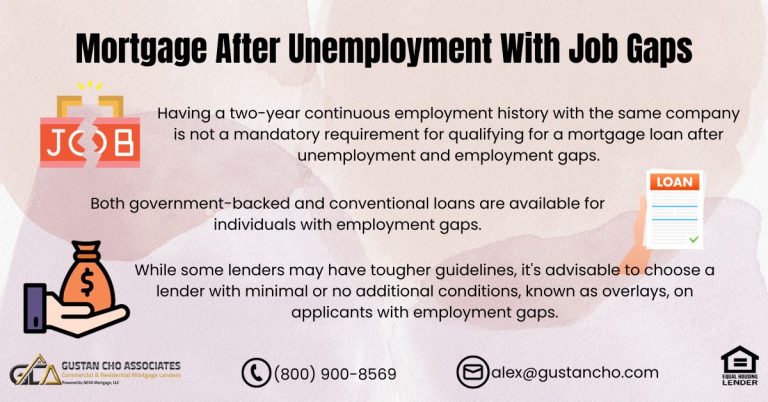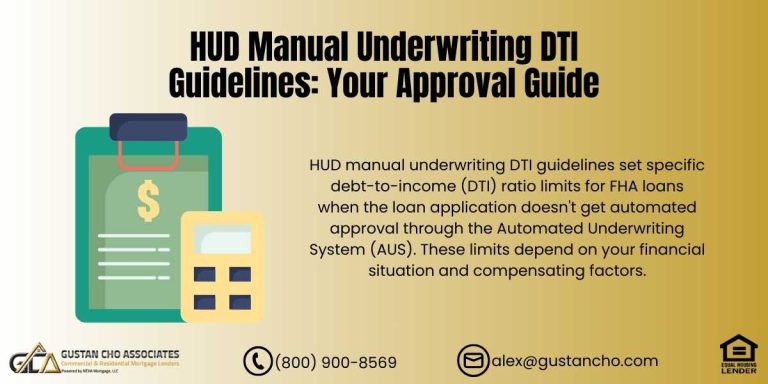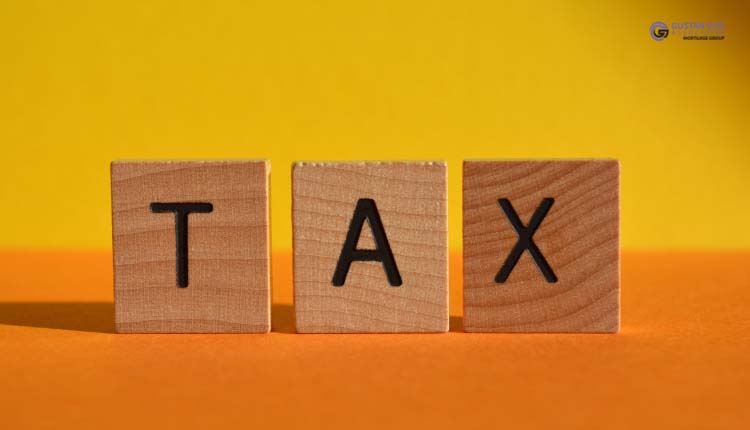This guide covers about the third-party search by mortgage lenders during the underwriting process. Mortgage lenders will pull three credit reports on every mortgage loan applicants during the mortgage process. The first step in the mortgage process is for lenders to look at borrower’s credit scores. The credit scores are what decides whether the loan applicant qualifies for a mortgage.
To qualify for a 3.5% down payment FHA loan, applicants needs a 580 credit score. To qualify for a conventional loan, the borrower needs a 620 FICO. To qualify for an FHA 203k loan, most lenders will require a 640 FICO due to overlays.
Gustan Cho Associates does not have any overlays on government and conventional loans. To qualify for a VA loan, most lenders will require a 620 credit score. The U.S. Department of Veterans Affairs does not have any credit score or debt to income requirements. Most jumbo lenders will require a credit score of 700. In this article, we will discuss and cover the third-party search by mortgage lenders during the underwriting process.
How Does Third-Party Search by Mortgage Lenders Work
Third-party search by mortgage lenders refers to the process of mortgage lenders conducting a search or review of a borrower’s credit, financial, and personal information through third-party sources. Mortgage lenders use this information to assess a borrower’s creditworthiness and eligibility for a mortgage loan. Mortgage lenders will obtain a copy of the borrower’s credit report from one or more major credit bureaus, such as Equifax, Experian, or TransUnion. This report contains information about the borrower’s credit history, including credit scores, payment history, outstanding debts, and any derogatory marks.
Speak With Our Loan Officer for Getting Mortgage Loans
Income and Asset Verification By Mortgage Lenders
Lenders may verify the borrower’s income and employment status by contacting the borrower’s employer or through third-party verification services. This helps ensure that the borrower has the means to make mortgage payments.
Borrowers should be prepared to provide the necessary documentation and information to facilitate these searches when applying for a mortgage.
Lenders may also verify the borrower’s assets, such as bank account balances, investment accounts, and other financial assets. This is done to confirm the borrower’s ability to cover the down payment and closing costs. Some lenders may perform background checks on borrowers to check for any criminal history or other potential red flags.
What is the Purpose of Third-Party Search By Mortgage Lenders
While not directly related to the borrower, lenders typically order a property appraisal to determine the value of the home being purchased. This is important for determining the loan amount and loan-to-value ratio. Depending on the lender and the loan program, additional third-party searches and verifications may be conducted.
The purpose of these third-party searches is to assess the risk associated with lending to a particular borrower and to ensure that the borrower meets the lender’s eligibility criteria.
Lenders may check for any outstanding liens or judgments against the borrower. The information gathered during these searches helps lenders make informed decisions about whether to approve a mortgage application and what terms and interest rates to offer. It’s important for borrowers to be aware that these third-party searches are a standard part of the mortgage application process, and they play a significant role in the lender’s decision-making process.
Non-QM and Alternative Mortgage Options
Gustan Cho Associates offers non-QM jumbo mortgages with credit scores down to 620. Besides the credit score, lenders will carefully review borrower’s credit reports. Underwriters will pay special attention to collection accounts, late payments, tax liens, judgments, bankruptcy, foreclosures, deed in lieu of foreclosures, and short sales.
All third-party search by mortgage lenders is done by hiring third-party vendors such as Data Verify or Lexis Nexis or some other third party search companies.
Special emphasis will be on looking for public records. Third-party search by mortgage lenders will be done on every mortgage loan file to detect mortgage fraud. Third-party search by mortgage lenders will also detect public records and debts such as judgments or liens that are not reported on the credit bureaus.
How Credit Repair Impact Third-Party Search By Mortgage Lenders
It is highly recommended borrowers review their credit report and check to see if they can improve their credit scores and repair their credit prior to applying for a mortgage loan. Many use the services of credit repair companies and credit repair does work. However, there are times where credit repair can do a lot of damage and backfire.
A credit repair company can remove derogatory information such as older collection accounts, charge-offs, late payments, repossessions, and other derogatory items.
Surprisingly, I have seen many credit repair companies remove public records such as bankruptcies, foreclosures, deed in lieu of foreclosure, short sale, tax liens, judgments, delinquent student loan accounts, and delinquent child support payments. Third-party search by mortgage lenders cannot detect deletions of collection accounts, charge-offs, and late payments since they are not public records.
Talk With Experts for Credit Repair, Click here
Results of Third-Party Search By Mortgage Lenders
Let’s take a case scenario on a borrower who has several unsettled judgments on their credit report. Some credit repair companies can get those unpaid judgments off the consumer’s credit report. When a loan officer pulls all three credit reports, the unpaid judgments will not show up on the credit report if the credit repair company got them deleted through credit repair. The loan originator will submit the application to processing and underwriting with a clean credit report.
During the mortgage underwriting process, the mortgage underwriter will hire a third-party vendor like Data Verify or Lexis Nexis to do a third-party search by mortgage lenders on the applicant.
There is no way of finding out derogatory deletions such as late payments, unpaid collection accounts, charge-off accounts, or other negative derogatory credit accounts that are not filed with public records. Third-party vendors will find out derogatory items that have been filed on public records that are off the consumer’s credit report.
Third-Party Public Records Search By Mortgage Lenders During Loan Process
Public records such as bankruptcies, foreclosures, deed-in-lieu of foreclosures, short sales, judgments, tax liens, and delinquent child support and alimony payments will get discovered through third-party public records search by mortgage lenders. Third-party search by mortgage lenders will detect all public records in the United States. Borrowers who paid premium dollars to remove their public records such as prior bankruptcy, foreclosures, and judgments will get caught by third-party search by mortgage lenders.
Mortgage Application Questionnaire
At the end of the 1003 mortgage loan application, there will be a series of questions that is asked. Questions whether or not have applicants had filed bankruptcy in the past 7 years, had a foreclosure, have any judgments will be asked.
The mortgage application questionnaire needs to be answered truthfully. Applicants who knowingly misstate the answers to application questions, then it can possibly be classified as mortgage fraud.
If the lender finds out there are derogatory public records through the third-party search by mortgage lenders, the mortgage loan will get denied. Knowlingly not disclosing deleted public records from the credit bureaus is a form of mortgage fraud: Mortgage fraud is a serious felony punishable up to 30 years in federal prison for each count of mortgage fraud. Most people who get caught do not get in trouble and just get warned. Speak With Our Loan Officer for Getting Mortgage Loans
Discovery of Public Records Through Third-Party Search By Mortgage Lenders
There are cases where consumers have credit repair companies delete public records such as bankruptcies, foreclosures, and judgments to qualify for a mortgage. Since they are not on their credit reports, applicants simply state no to the questions of bankruptcy, foreclosure, and judgments. They mark NO even though they know they have them recently.
Many applicants think lenders will not find out with derogatory public information that has been deleted from the credit bureaus. Unfortunately, lenders will find out about public records deleted from credit reports when they do a third-party search by mortgage lenders.
If the mortgage loan closes and funds and borrower defaults on their loan and the lender finds out that they were deceived due to the borrower lying on their mortgage loan application, then it is another matter. The mortgage lender can call the loan due and the borrower can get in trouble for mortgage fraud. To qualify for an FHA loan with a lender with no overlays, please contact us at Gustan Cho Associates at 800-900-8569 or text us for a faster response. Or email us at gcho@gustancho.com. The team at Gustan Cho Associates is available 7 days a week, evenings, weekends, and holidays.
Try to use Gustan Cho Associates services for your mortgage loans










